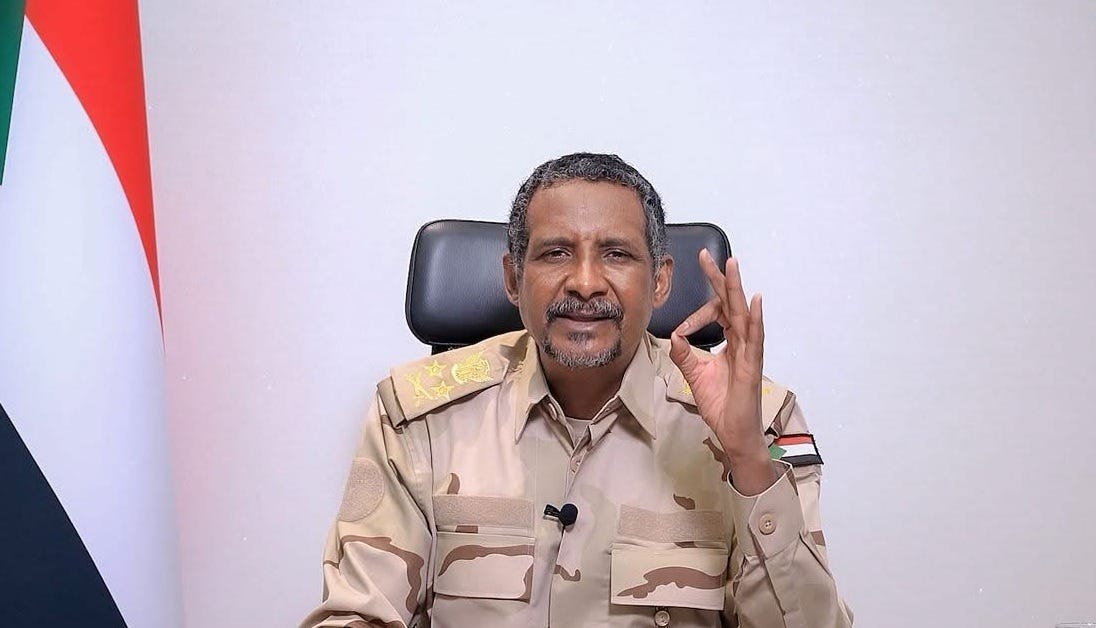Hemedti threatens regional aviation
RSF targets Khartoum Airport ahead of planned flight resumption
The commander of Sudan’s Rapid Support Forces (RSF), Mohamed Hamdan Dagalo, widely known as Hemedti, has threatened to strike any airport in the region that is found to be supporting the Sudanese Armed Forces’ (SAF) air operations. His threat came just hours after RSF drones targeted Khartoum Airport, disrupting governmen…
Keep reading with a 7-day free trial
Subscribe to Sudan War Monitor to keep reading this post and get 7 days of free access to the full post archives.


